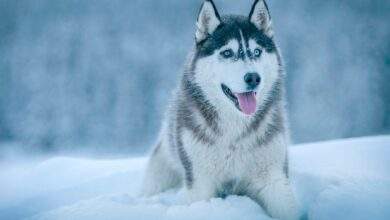
A complete information to loving and caring for growing older companions, As our beloved pets age, they deserve our particular consideration and care to make sure their twilight years are full of consolation, love, and companionship. On this complete information, we’ll equip you with the data and compassion wanted to offer the absolute best care to your older pets. From understanding the indicators of growing older to managing well being points, making certain correct diet and train, grooming, and creating a cushty dwelling atmosphere, we’ll cowl each side of older pet care.
Table of contents
Understanding Senior Pets
The Getting older Course of
Pets, like people, undergo bodily and behavioral modifications as they age. Understanding these modifications is crucial for offering applicable care.
Earlier than we dive into the specifics of older pet care, let’s discover the growing older course of in our beloved companions.
As pets age, they expertise a sequence of bodily and behavioral modifications. These modifications are a pure a part of the growing older course of and fluctuate from pet to pet. Some widespread indicators of growing older in pets embody:
- Grey Fur: Similar to people, pets could develop grey fur as they age. This transformation in fur coloration is usually one of many first seen indicators of growing older.
- Decreased Exercise: Older pets are usually much less lively than their youthful counterparts. They might spend extra time resting and sleeping.
- Joint Stiffness: Arthritis and joint stiffness are widespread in senior pets. It’s possible you’ll discover that your pet has problem getting up or transferring round.
- Adjustments in Urge for food: Some senior pets could expertise modifications in urge for food. They might eat much less or have particular dietary preferences.
- Behavioral Adjustments: Senior pets can exhibit modifications in habits, equivalent to elevated clinginess or disorientation.
It is essential to notice that these modifications are a part of the pure growing older course of. Nonetheless, when you discover sudden or extreme modifications in your pet’s habits or well being, it is important to seek the advice of along with your veterinarian to rule out underlying medical circumstances.
Indicators of Getting older
Study to acknowledge the indicators of growing older in your pets, from graying fur to modifications in habits and mobility. Early detection can result in proactive care and a better high quality of life.
Now that we perceive the growing older course of, let’s delve into the facets of senior pet care.
Caring for older Pets
Vitamin for Older
Uncover the significance of senior pet diet and the way to decide on the proper food regimen to your growing older companions. Correct diet is a cornerstone of their well-being and vitality.
Getting older pets have distinctive dietary wants that differ from these of youthful animals. Listed below are some key concerns for offering correct diet to your senior pets:
- Decrease-Calorie Diets: Senior pets are sometimes much less lively than their youthful counterparts. To forestall weight achieve and weight problems, it is important to feed them a food regimen that’s decrease in energy however nonetheless nutritionally balanced.
- Joint Well being: Many senior pets endure from joint points, equivalent to arthritis. Search for pet meals that comprise joint-supporting elements like glucosamine and chondroitin.
- Digestive Well being: Getting older can generally result in digestive issues. Meals with simply digestible elements could also be useful for senior pets.
- Particular Diets: In some instances, senior pets could have particular medical circumstances that require a particular food regimen. Seek the advice of along with your veterinarian when you suspect your pet wants a specialised food regimen.
- Hydration: Senior pets are liable to dehydration, so it is essential to make sure they’ve entry to contemporary water always.
- Common Vet Checkups: Common checkups along with your veterinarian are important to watch your senior pet’s weight, general well being, and dietary wants. Your vet can advocate dietary changes as wanted.
By offering your senior pet with a well-balanced, age-appropriate food regimen, you possibly can assist them keep their well being and vitality of their later years.
Train for Older
Discover appropriate train routines for senior pets to maintain them lively and keep their bodily and psychological well being. Adaptation is essential to their train routine.
Train is crucial for the general well being and well-being of senior pets, nevertheless it’s essential to tailor their train routines to their particular wants and limitations. Listed below are some suggestions for offering applicable train for senior canines and cats:
For Senior Canine:
- Shorter Walks: Older canines could not have the endurance for lengthy walks, so go for shorter, extra frequent walks to stop fatigue.
- Low-Impression Actions: Take into account low-impact workout routines like swimming or light fetch video games, that are simpler on their joints.
- Psychological Stimulation: Puzzle toys and interactive video games can present psychological stimulation for senior canines.
- Seek the advice of Your Vet: At all times seek the advice of along with your veterinarian to find out the proper train plan to your senior canine, considering their breed, measurement, and any underlying well being points.
For Senior Cats:
- Playtime: Have interaction your senior cat in interactive play periods with toys that encourage motion.
- Vertical House: Cats like to climb, so present them with vertical areas like cat timber or cabinets to discover.
- Senior Cat Toys: Some toys are designed particularly for senior cats, with options like slower motion or softer textures.
- Common Vet Checkups: Similar to with canines, common vet checkups are important to watch your senior cat’s well being and regulate their train routine accordingly.
Take into account that senior pets could tire extra rapidly than youthful ones, so it is important to be attentive to their consolation throughout train. For those who discover any indicators of fatigue or discomfort, it is best to take a break and allow them to relaxation.
Grooming and Hygiene
Study grooming suggestions and methods particularly tailor-made for senior pets. Sustaining their coat, pores and skin, and oral well being is significant for his or her consolation and general well-being.
Correct grooming and hygiene are important parts of senior pet care. Grooming not solely helps your pet feel and appear their finest but in addition means that you can spot potential well being points early. Listed below are some grooming suggestions for senior canines and cats:
For Senior Canine:
- Common Brushing: Brushing your senior canine’s coat helps take away unfastened fur, forestall matting, and distribute pure oils for a wholesome coat.
- Oral Care: Dental well being is essential for senior canines. Brush their tooth recurrently and supply dental chews or toys to assist hold their tooth clear.
- Nail Trimming: Maintain their nails trimmed to stop overgrowth, which might result in discomfort and mobility points.
- Ear Cleansing: Examine and clear your canine’s ears recurrently to stop ear infections.
For Senior Cats:
- Brushing: Common brushing helps scale back shedding and prevents matting, particularly in long-haired breeds.
- Oral Care: Dental points are widespread in senior cats. Brush their tooth and provide dental treats or toys.
- Nail Trimming: Trim your cat’s nails as wanted to stop them from turning into too lengthy and inflicting discomfort.
- Ear Cleansing: Cats are liable to earwax buildup, so verify and clear their ears when crucial.
Take into account that senior pets could have particular grooming wants, and their pores and skin and coat could also be extra delicate. For those who discover any pores and skin points, lumps, or modifications of their fur, seek the advice of along with your veterinarian.
With an understanding of senior pet care, let’s focus on widespread well being points and find out how to handle them.
Managing Well being Points
Widespread Well being Issues
Perceive the prevalent well being issues in senior pets, from arthritis to cognitive dysfunction. Uncover methods to handle ache, improve their high quality of life, and supply the care they deserve.
Senior pets are extra vulnerable to sure well being points because of the growing older course of. Listed below are some widespread well being issues that may have an effect on senior canines and cats:
For Older Canine:
- Arthritis: Arthritis is a standard situation in older canines, characterised by joint ache and stiffness. There are drugs and dietary supplements accessible to handle arthritis ache.
- Dental Points: Dental issues, equivalent to tooth decay and gum illness, are extra possible in senior canines. Common dental care is crucial.
- Cognitive Dysfunction: Similar to people, canines can expertise cognitive decline of their senior years. This will likely result in confusion and modifications in habits.
- Incontinence: Senior canines could develop urinary incontinence, which might typically be managed with treatment and supportive care.
For Older Cats:
- Kidney Illness: Kidney illness is a prevalent well being difficulty in senior cats. Specialised diets and drugs can assist handle this situation.
- Hyperthyroidism: Older cats are liable to hyperthyroidism, an overactive thyroid situation. Medicines or therapies like radioactive iodine remedy can be found.
- Dental Issues: Cats can develop dental points, together with gingivitis and tooth decay. Common dental care is essential.
- Arthritis: Arthritis can have an effect on senior cats as nicely, resulting in mobility points. Numerous therapies, together with ache drugs, can assist.
- Cognitive Dysfunction: Cats also can expertise cognitive decline as they age, which can manifest as disorientation or modifications in habits.
It is important to work carefully along with your veterinarian to watch your senior pet’s well being and handle any rising points promptly. Common checkups and screenings change into much more crucial of their senior years. Your veterinarian can advocate applicable therapies, drugs, or way of life changes to guarantee your pet’s consolation and well-being.
As we navigate the realm of well being points, let’s discover methods to make sure your senior pet’s consolation and happiness.
Making a Snug Atmosphere
Adapting Your Residence
Discover methods to adapt your own home to accommodate the altering wants of your senior pet. Easy changes could make a big distinction of their consolation and accessibility.
Making certain that your own home is senior-pet-friendly is a crucial side of their care. Listed below are some sensible suggestions for adapting your own home atmosphere:
For Older Canine:
- Orthopedic Beds: Present your senior canine with an orthopedic or reminiscence foam mattress to help their joints and supply consolation throughout relaxation.
- Ramps or Steps: In case your canine has problem climbing stairs or getting on the sofa or mattress, think about using ramps or steps to make these areas accessible.
- Non-Slip Flooring: Be certain that your flooring are slip-resistant, as senior canines could have hassle with slippery surfaces.
- Security Gates: Use security gates to limit entry to areas which will pose dangers, equivalent to stairs.
For Older Cats:
- A number of Litter Bins: You probably have a multi-story dwelling, place litter bins on every flooring to make it simpler to your senior cat to entry them.
- Cat Bushes and Perches: Cats love vertical areas. Present cat timber or perches at numerous heights to accommodate their need to climb.
- Heated Beds or Pads: Cats, particularly these with arthritis, could profit from heated beds or pads to assuage achy joints.
- Straightforward-Entry Meals and Water: Place meals and water dishes in simply accessible places to make sure that your cat can attain them with out problem.
- Common Vet Visits: Be certain that your cat has common veterinary checkups to watch their well being and handle any rising points.
By making these changes to your own home, you possibly can create a secure and cozy atmosphere that caters to your senior pet’s particular wants.
In our ultimate part, let’s contact on sensible facets like grooming and journey concerns for senior pets.
Sensible Ideas for Senior Pet Care
Grooming Ideas
Uncover efficient grooming suggestions tailor-made for senior pets. These practices can assist them feel and appear their finest whereas stopping widespread points like matting and pores and skin irritations.
Correct grooming is crucial for senior pets to keep up their well being and luxury. Listed below are some grooming suggestions for senior canines and cats:
For Older Canine:
- Common Brushing: Brushing your senior canine’s coat helps take away unfastened fur, forestall matting, and distribute pure oils for a wholesome coat.
- Oral Care: Dental well being is essential for senior canines. Brush their tooth recurrently and supply dental chews or toys to assist hold their tooth clear.
- Nail Trimming: Maintain their nails trimmed to stop overgrowth, which might result in discomfort and mobility points.
- Ear Cleansing: Examine and clear your canine’s ears recurrently to stop ear infections.
For Older Cats:
- Brushing: Common brushing helps scale back shedding and prevents matting, particularly in long-haired breeds.
- Oral Care: Dental points are widespread in senior cats. Brush their tooth and provide dental treats or toys.
- Nail Trimming: Trim your cat’s nails as wanted to stop them from turning into too lengthy and inflicting discomfort.
- Ear Cleansing: Cats are liable to earwax buildup, so verify and clear their ears when crucial.
Take into account that senior pets could have particular grooming wants, and their pores and skin and coat could also be extra delicate. For those who discover any pores and skin points, lumps, or modifications of their fur, seek the advice of along with your veterinarian.
Touring with Older
For those who plan to journey along with your senior pet, there are concerns to consider. Discover ways to make the journey secure and cozy, making certain that your growing older companion can accompany you on adventures.
Touring with senior pets requires considerate planning to make sure their security and luxury. Listed below are some suggestions for touring along with your growing older companion:
- Seek the advice of Your Vet: Earlier than embarking on a visit, schedule a go to to your veterinarian to make sure that your senior pet is match for journey. Focus on any well being considerations or particular precautions.
- **Snug Service:** For those who’re touring by automobile or airplane, present a cushty provider or crate with ample air flow. Familiarize your pet with it earlier than the journey.
- Frequent Breaks: Plan for frequent breaks throughout automobile journeys to permit your pet to stretch their legs, use the restroom, and keep hydrated.
- Pack Necessities: Carry all crucial provides, together with drugs, meals, water, bedding, and any consolation objects your pet depends on.
- Temperature Issues: Be aware of temperature extremes. Senior pets could also be extra delicate to warmth or chilly, so regulate your journey plans accordingly.
- Emergency Equipment: Put together a pet first support equipment with important provides, together with any drugs your pet requires.
- Identification: Guarantee your pet has correct identification, together with a collar with up to date contact info and a microchip.
- Touring by Air: If flying, verify the airline’s particular necessities for touring with pets, and e book a direct flight if potential to attenuate journey time.
By taking these precautions and planning forward, you possibly can take pleasure in journey adventures along with your senior pet whereas making certain their security and well-being.
As we conclude, let’s summarize important suggestions for efficient senior pet care.
Older Pet Care Ideas
Discover a concise but complete checklist of suggestions to offer the perfect care to your growing older pets. These sensible methods will assist you to navigate the distinctive challenges and joys of senior pet possession.
Here is a fast recap of important suggestions for senior pet care:
- Acknowledge Indicators of Getting older: Be vigilant in figuring out indicators of growing older in your pets, and seek the advice of along with your veterinarian when you’ve got considerations.
- Tailor Vitamin: Present age-appropriate, balanced diets to fulfill your senior pet’s dietary wants.
- Adapt Train: Regulate train routines to accommodate your senior pet’s bodily talents and limitations.
- Prioritize Grooming: Common grooming is essential for senior pets to keep up their well being and luxury.
- Handle Well being Points: Keep proactive in managing widespread well being points that have an effect on senior pets.
- Create a Snug Residence: Make crucial dwelling changes to improve your senior pet’s consolation and accessibility.
- Protected Journey: For those who journey along with your senior pet, plan rigorously to make sure their well-being in the course of the journey.
- Common Vet Checkups: Preserve common veterinary checkups to watch your senior pet’s well being.
Older Pet Care
Caring for senior pets is a satisfying journey that requires understanding, persistence, and love. By recognizing the indicators of growing older, offering applicable diet, train, grooming, and creating a cushty atmosphere, you possibly can make sure that your growing older companions take pleasure in their later years in consolation and contentment. Your unwavering care and companionship imply the world to them as they gracefully age by your facet.







